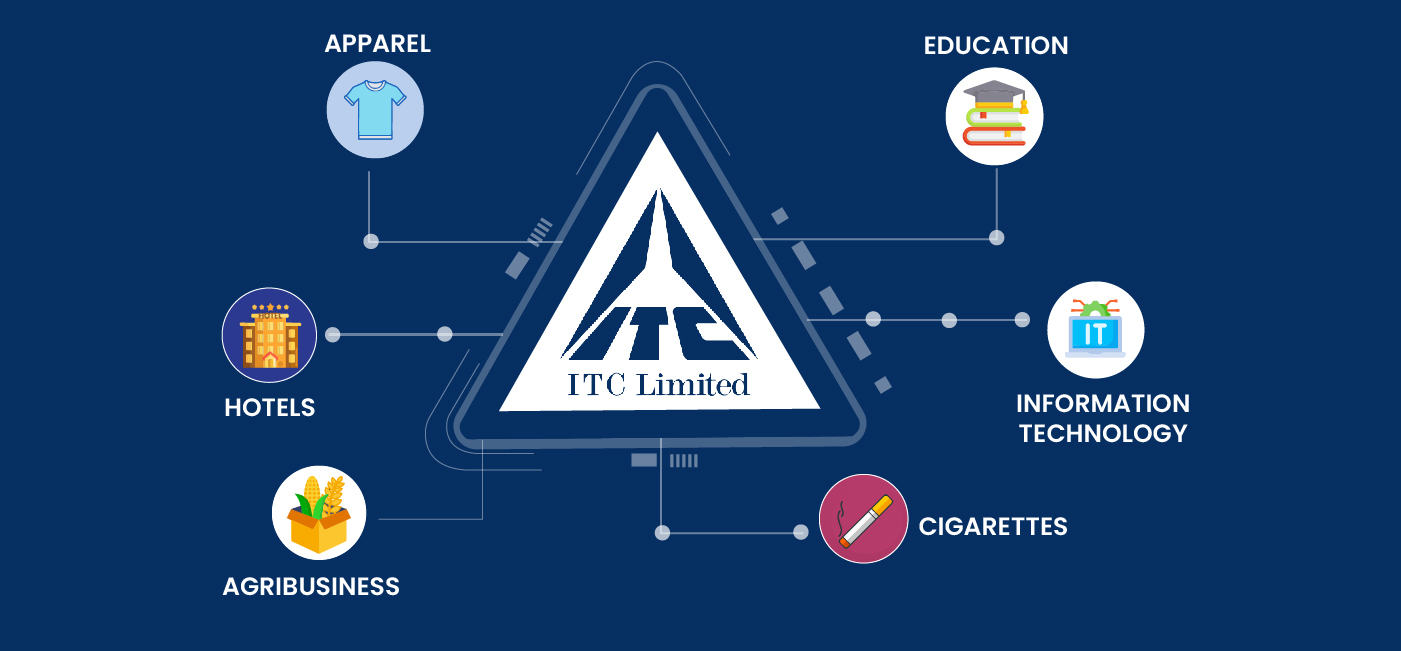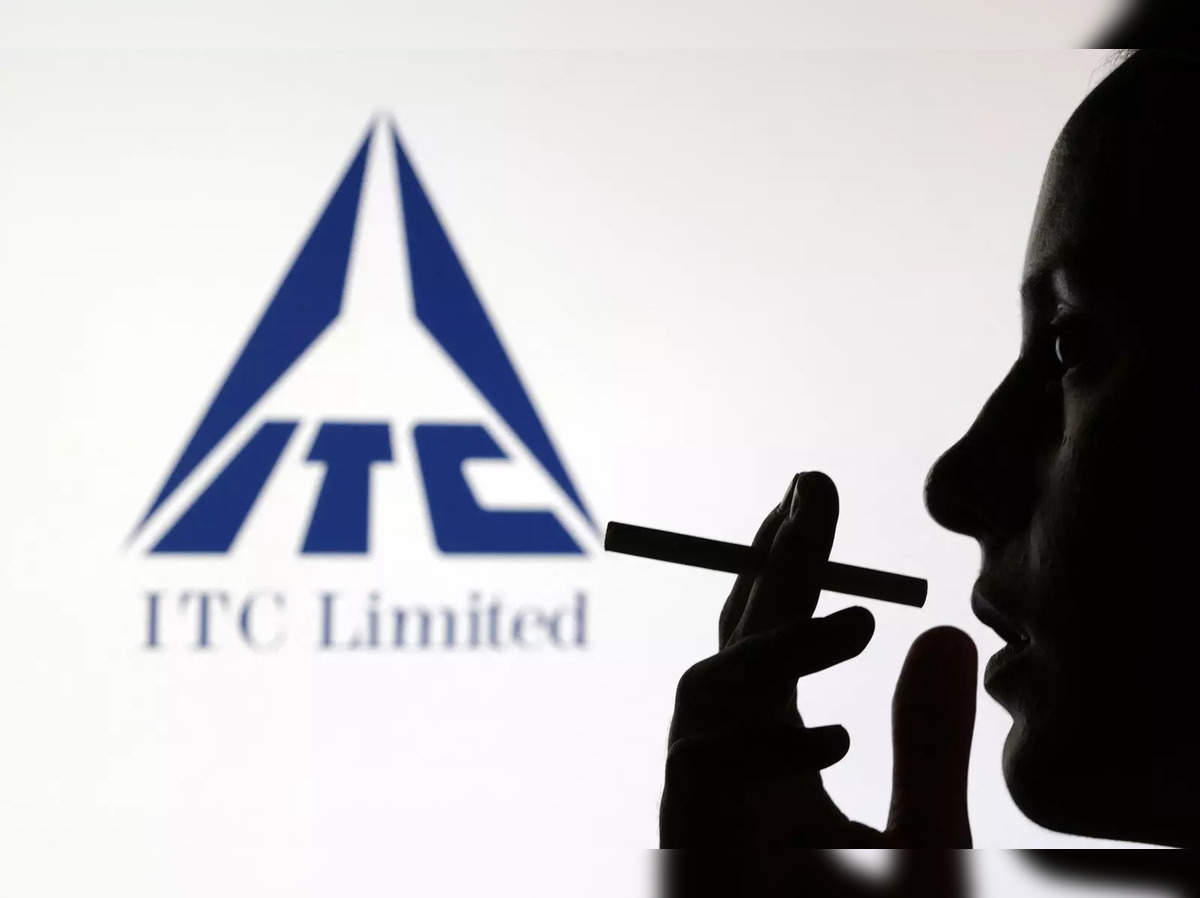ITC Is En Route To Lowering Its Carbon Impact With A Goal For Sustainability.
The occurrence led ITC, which has a market capitalization of INR500,000 crore, to look into the implications of climate change on ITC's operations.

Floods wrecked havoc in the pilgrimage town of Bhadrachalam, Telangana, in July 2022, where ITC Paperboard, India’s largest paper pulp facility, is located. This kind of destruction is nothing new to Bhadrachalam, which has long endured the wrath of the flooding Godavari.
The swelling Godavari river broke 65 feet of barriers meant to keep water out of the ITC facility.
The unit had to be turned down after the water level reached 80 feet, the highest it has ever been.

The occurrence led ITC, which has a market capitalization of INR500,000 crore, to look into the implications of climate change on ITC’s operations. It is now collaborating with climate specialists to perform a complete evaluation of climate change risk and susceptibility throughout its factories, hotels, warehouses, and agricultural value chains. For risk mitigation and adaptation, detailed site-specific analyses are being conducted.
Since 2019-20, ITC has conducted climate risk assessments in all of its units.
However, beginning in 2023, the ITC will look into the impact of climate change on a granular level, taking into account the kind of climatic vulnerability-water, drought, floods, heat for the agriculture value chain, and all other locations.
The majority of ITC’s industry is related to agriculture. FMCG items, cigarettes, paper, and extreme weather occurrences may all have a negative influence. In FY23, the cigarette, agro, paper pulp, and FMCG sectors generated roughly three-fourths of the company’s gross revenue of INR64,618 crore.
The ITC has begun a journey of Sustainability 2.0 (S2.0) vision in five broad areas renewable energy, water conservation and harvesting, waste recycling, plastic packaging reduction, and farm forestry to accelerate decarbonisation and build resilience against climate risks across the value chain. Targets for all of its operations are set for 2030.
ITC Chairman Sanjiv Puri noted in the company’s Sustainability Report 2022 that he believes the next horizon for ITC would be characterised by possibilities at the convergence of megatrends like digital and sustainability.

ITC bills itself as the world’s first firm of comparable size to be carbon positive for 17 years, water positive for 20 years, and solid waste recycling positive for 15 years, and it is well-known for its environmental, social, and corporate governance (ESG) credentials.
However, environmental experts believe such corporate promises should be regarded with a grain of salt, even if there has been some development in the environmental performance of polluting sectors due to better technology over the years.
The ESG framework is now being called into question all over the world due to a difficulty with monitoring and measurement. According to Chandra Bhushan, CEO of the International Forum for Environment, Sustainability, and Technology (iFOREST), he has long been suspicious of corporate claims of water/plastic neutrality. He’d seen firms claim to be water neutral because they gather rainfall from 100 kilometres away. He is dubious of auditing companies’ abilities because they have been called into question several times.
For the time being, the cigarette-to-hotels company hopes to be a game changer by adopting aggressive objectives as part of its low-carbon transition path.
Sustainability 2.0 Objectives.
- Climate change mitigation
- Water conservation
- Agriculture that is environmentally friendly
- Sources of income that are long-term
- Circular economy and plastic waste
- Biodiversity protection

The S2.0 vision’s aims will boost ITC’s large-scale efforts to mitigate climate change. To do this, they are strengthening their management strategy, which is driven by a comprehensive set of sustainability policies. Puri adds that they are also expanding the processes for engaging key stakeholders, recognising material sustainability challenges, and gradually monitoring and reducing the effect along the value chains.
To pursue continuous improvement in energy & emissions-related performance in line with S2.0 ambitions, ITC’s businesses aim to reduce specific greenhouse gas (GHG) emissions by 50%, specific energy consumption by 30% (FY18-FY19 baseline), and specific water consumption by 30% by 2030.
Key performance indicators (KPIs) such as specific energy consumption, specific greenhouse gas emissions, particular water intake, and specific trash generation have been defined as short-to-medium-term goals by the organisation.
ITC has made investments in renewable energy projects such as wind power plants, rooftop solar and offshore solar power plants for electricity, and biomass boilers for thermal energy. During FY21-FY22, these investments enabled ITC to satisfy 41.8% of its energy demand from renewable sources. The objective for 2030 is to increase investment in renewable energy.
Sustainable agriculture lies at the heart of the ITC’s S2.0 goal. It intends to promote the ‘Climate Smart Village’ model across three million acres of important agri-business catchments by 2030.
ITC intends to establish climate change mitigation strategies for agricultural sourcing and to scale up existing initiatives to reduce agricultural emissions.
Recognising that factors such as an increase in extreme weather events, varying climatic parameters, and reliance on rainwater for irrigation make agriculture in India quite vulnerable to climate change, significant and sustained work is being done on the development of climate-tolerant varieties for major crops such as wheat, pulpwood, and leaf tobacco, among others.

Together, leaf tobacco, eucalyptus, and wheat account for more than 80% of the agri raw material procured by ITC. Ongoing research on climate-resilient crops and pulpwood aims to improve raw material supply security and farmer profits.
Wheat and potato varietal securitisation research is nearing completion in order to enable flexibility in raw material sources, generate region-specific mixes, and assure robust agro-climatic adaptation.
MNCs give climate adaptable cultivars to farmers while keeping their profits and advantages in mind. They have encountered occasions when MNCs refused to take farmers’ produce because it did not fit their specifications, such as size and starch content. As a result, the majority of farmers do not believe these assertions and jeopardise their livelihood, according to Ramandeep Singh Mann, a farm activist.
According to IPCC, a temperature increase of 1°C-4°C above normal will reduce rice output by 10%-30% and maize production by 25%-70% in India.
Companies have increased their attention on programmes that make environmental sustainability a primary objective. According to Anand Ramanathan, Partner, Consulting, Deloitte India, some of these interventions include setting net-zero emissions objectives, speeding decarbonisation, deploying breakthrough low-carbon technology, collaborating with climate experts, and investing heavily in long-term solutions to promote green.
According to the firm, ITC’s FMCG products reach over 200 million households in India, ranging from Aashirvaad atta to Bingo chips and Sunfeast cookies to Savlon.
Given ITC’s considerable position in the FMCG industry, the emphasis is responsible sourcing, agricultural sustainability, improving operational efficiency, incorporating circularity concepts in packaging, and gradually lowering agriculture-related carbon emissions.
In addition, the goal is to replace plastic packaging with eco-friendly/recyclable packaging in several of ITC’s FMCG items. Plastic bottles for certain of its FMCG items now include post-consumer recycled material, and paper-based bags are utilised in select products for packaging.

The business is constructing FMCG-integrated food production and logistics facilities, and all of these plants’ rooftops have been transformed into solar panels. One such facility is being built on 59 acres in Medak, Telangana, with an investment of about INR700 crore. This reduces the carbon footprint of production, and all planned units are built with the region’s water and heat risks in mind.
ITC’s yearly packaging footprint from its FMCG operations, encompassing primary, secondary, and tertiary packaging forms, is around 187 kilotonnes, with paper/paperboard-based packaging accounting for 71%, followed by plastic packaging (27%). Glass and metal are only a minor part of the entire package footprint, accounting for less than 2%.
Several scientific studies have found that cultivating tobacco, a cash crop, causes significant deforestation, depletes water resources, and negatively impacts soil quality. The ITC claims to be committed to achieving ‘Zero Deforestation’ across the leaf tobacco value chain.
Puri stated in the business’s 2022 sustainability report that the company maintained its ‘AA’ grade by MSCI-ESG, the highest among global tobacco companies, and was even included in the Dow Jones Sustainability Emerging Markets Index.
The ITC, which produces cigarette brands such as Gold Flake, Classic, and Bristol, introduced the strengthened version of the worldwide Sustainable Tobacco Programme (STP 2.0) across the leaf-producing areas in FY21-FY22.
Water, human rights, agriculture, soil, climate change, natural habitats, livelihoods, and governance were among the eight issues addressed by the initiative. It requires leaf suppliers to agree to these themes. A computerised crop monitoring tool was implemented in the areas, and field personnel were taught to collect all STP 2.0 data.
To conserve energy and guarantee sustainable fuel management in tobacco curing, the company has devised a three-pronged method. According to the corporation, this comprises the development of fuel-efficient technology, the promotion of self-sufficiency in fulfilling fuel requirements through energy plantations, and the use of alternative fuels.
The ITC’s paper industry is the company’s energy guzzler and garbage maker. Paperboards and Specialty Papers Business (PSPD) accounts for approximately 87% of ITC’s overall energy consumption, 80% of GHG emissions, and approximately 88% of ITC’s total waste output.
The S2.0 for the paper industry focuses on decarbonizing operations through increased use of renewable energy, including investments in wind and solar power, a green boiler, and a soda recovery boiler. Other areas of emphasis include raw material sustainability.

A cutting-edge, future-ready High-Pressure Recovery Boiler was erected at the Bhadrachalam mill as part of the energy transformation path, replacing traditional soda recovery boilers. This will help to decrease the carbon footprint by lowering coal use.
Paper enterprises consume a lot of water, and ITC’s total water intake in FY21-FY22 was 33.7 million kilolitres (kl). ITC’s Paper division consumed around 89% of the company’s overall water intake. At high water stress locations, the corporation is in the process of implementing the Alliance for Water Stewardship (AWS) standards. It entails returning more water to communities than was utilised directly in operations.
The firm has increased its commitment in creating new and environmentally friendly packaging alternatives that can replace single-use plastics. The key areas include sustainable raw material sourcing and being a leader in the eco-labeled goods and premium recycled paperboards segments.
According to the firm, ITC Hotels, one of India’s largest hospitality groups with 113 hotel locations and over 10,700 rooms, promotes responsible luxury by giving customers zero carbon stays.
As part of S2.0, ITC plans to significantly lower the carbon footprints of its hotel operations by shifting to renewable energy and committing to long-term waste management and water security measures.
The firm operates several well-known luxury hotels, including Grand Chola, a 600-key super-premium luxury hotel complex in Chennai, ITC Windsor in Bengaluru, and ITC Mughal in Agra. ITC has kept all of its top luxury hotels LEED Platinum certified. The US Green Building Council’s (USGBC) LEED certification is the most extensively utilised green building grading system in the world.
In accordance with its Sustainability 2.0 objective, ITC commissioned its first offsite solar project in Dindigul, Tamil Nadu, during FY22. The 14.9 MW solar facility would drastically cut CO2 emissions and will allow it to achieve 90% of its power requirements in Tamil Nadu from renewable sources.
ITC Windsor, Bengaluru, will be the world’s first LEED Zero Carbon Hotel in 2020. To achieve near-zero emissions, the hotel added heat pumps, electric boilers, and green power, while other unavoidable GHG emissions were offset through verified offsets.
Conclusion.
A significant portion of ITC’s broad portfolio’s revenues are tied to the agro value chain, one of the sectors most sensitive to global warming, causing the company to begin a thorough evaluation of climate risk and susceptibility. With a Sustainability 2.0 strategy, it has begun to take actions to decrease its carbon impact.




